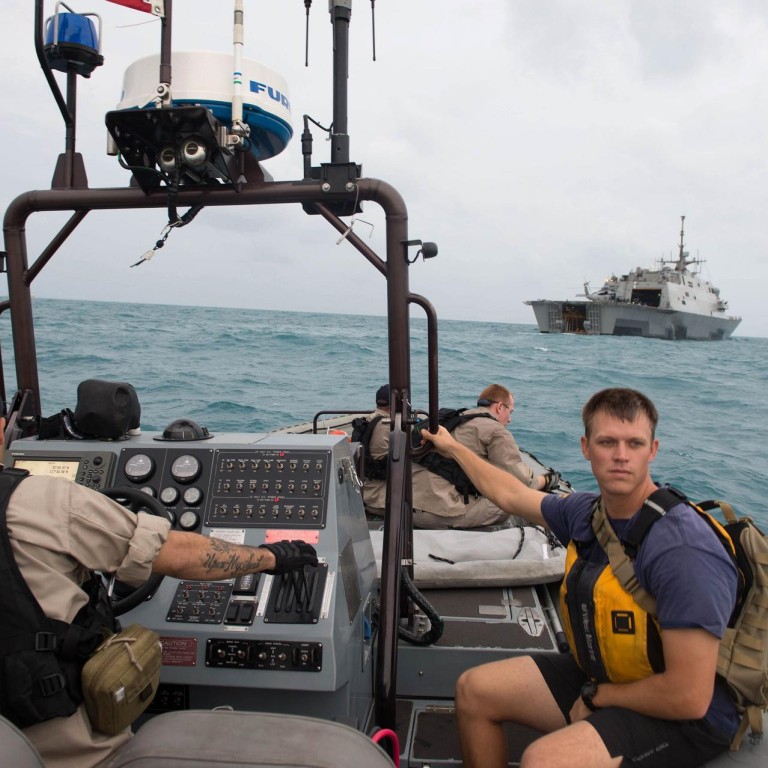
Big nations' aid in AirAsia search may be to boost their soft-power stance, observers say
Indonesia has welcomed big countries' assistance, but observers question motives
US and Chinese warships have rushed to help Indonesia search for a crashed plane, but analysts say more than altruistic motivations are at play with world powers jostling for influence.
On the surface, the sight of naval vessels from the world's strongest nations sailing close to one another in the Java Sea, with Russian military planes flying above, shows their willingness to unite in a time of disaster.
But those nations are also cleverly using the disaster to project their militaries as a force for good in Asia, observers say.
AirAsia Flight 8501 from Surabaya to Singapore crashed during stormy weather on December 28, claiming the lives of all 162 people on board.
With rough seas hampering the search for the wreckage and the bodies, Indonesia has gratefully accepted the help of military assets from many foreign nations including the United States, China and Russia.
"I don't think there's any question that this is also about building soft power," said John Blaxland, a senior fellow at Australian National University's Strategic and Defence Studies Centre.
For the United States, the crash offered a timely example to the region of the advantages of President Barack Obama's drive to increase US military assets in Asia. The USS Fort Worth, one of two warships it deployed to the Java Sea, came from Singapore, where it had just begun a 16-month "rotational deployment".
"It shows they are prepared to contribute to humanitarian assistance. It's part of the soft foil for hard power in the region," Blaxland said.
Gregory Poling, a Southeast Asia analyst at the Washington-based think tank Centre for Strategic and International Studies, also said such operations won or cemented regional friendships for the United States.
Aside from AirAsia, Poling cited the lead role the US military played in the international response to Super Typhoon Haiyan in the Philippines in 2013, and help in last year's search for Malaysia Airlines Flight 370.
China, meanwhile, is starting to play a bigger role in regional disaster-response efforts in a strategy some see as trying to counter the United States and allay fears over the dramatic expansion of its military.
For the AirAsia crisis, China quickly deployed a PLA Navy rescue vessel with divers on board, as well as experts in finding "black box" flight data recorders.
Blaxland said China's fast action and offer of more support showed it had learned from the mistakes of Haiyan, when it only offered significant help after its meagre initial response was heavily criticised.
Russian President Vladimir Putin also sent two military aircraft and divers to help in the search for the AirAsia wreckage.
Putin endured heavy criticism for his nation's alleged role in the shooting down of another Malaysia Airline plane, Flight 17, travelling over Ukraine last July.
